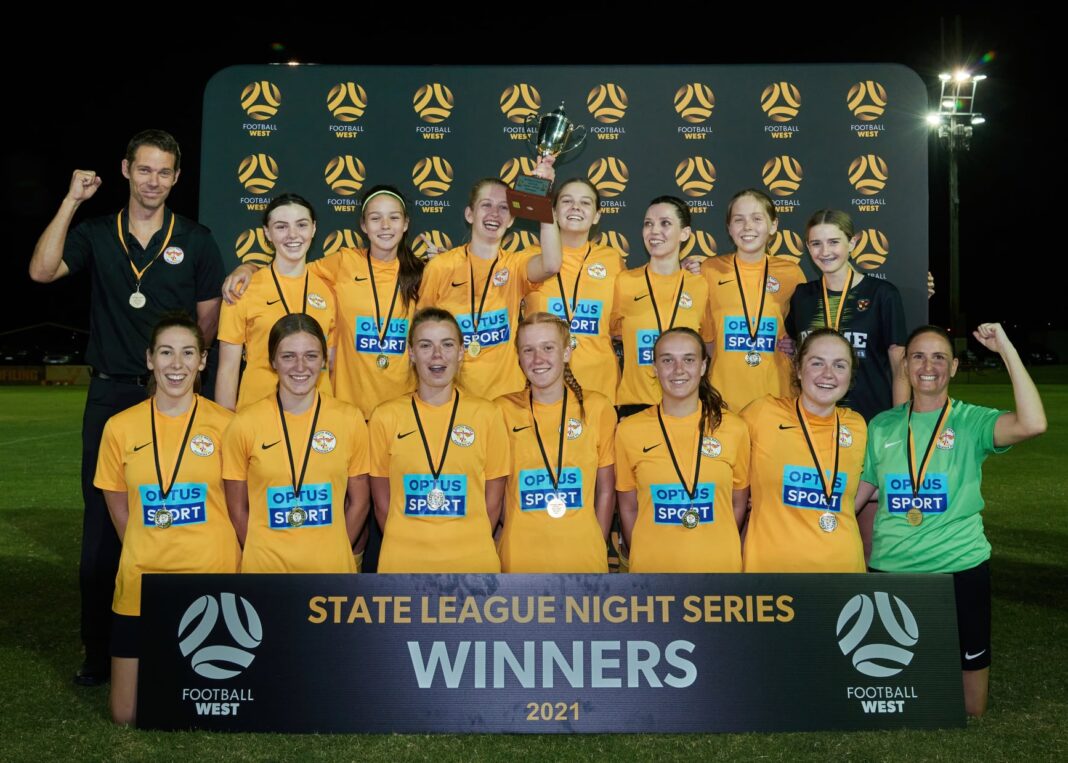

At the recent Perth Glory end of season awards, Natasha Rigby picked up the Players’ Player of the Year award, a just reward for her leadership both on and off the field during the most difficult season that Perth Glory has had to endure.
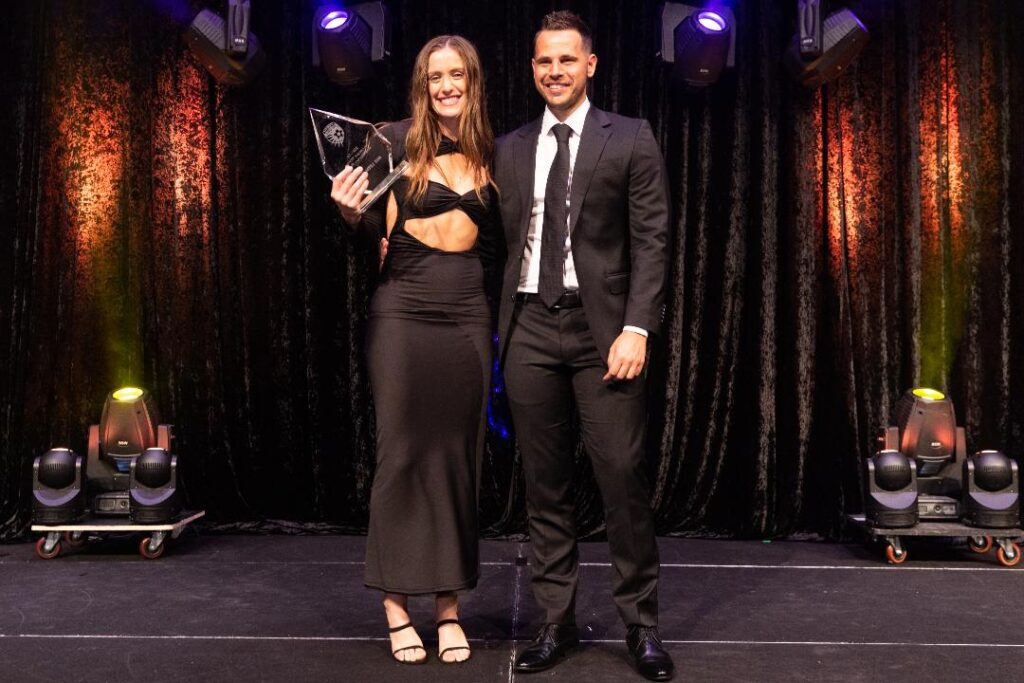
Rigby hails from Margaret River and is probably the most celebrated alumni of South West Phoenix FC. Phoenix is based in Bunbury, a two-hour drive south of Perth, and they compete in the State League competition, which is the level below the NPLW in Western Australia.
Phoenix has a long history of producing fine players, drawing on the southwest region of the State, which encompasses the Country Coastal Junior Soccer Association in the Greater Bunbury region and the Leeuwin Naturaliste Junior Soccer Association.
Other notable players from the club include Baxter Thew (currently playing in the NSW NPL with Bankstown City), Kim McCartney (Balcatta Etna FC), Chelsie Winchcombe (Subiaco AFC), Kathleen Waycott (ex-Perth Glory), Dayle Schroeder (ex-Fremantle City and MUM FC) and Courtney Butlion (Eastern Florida State College).
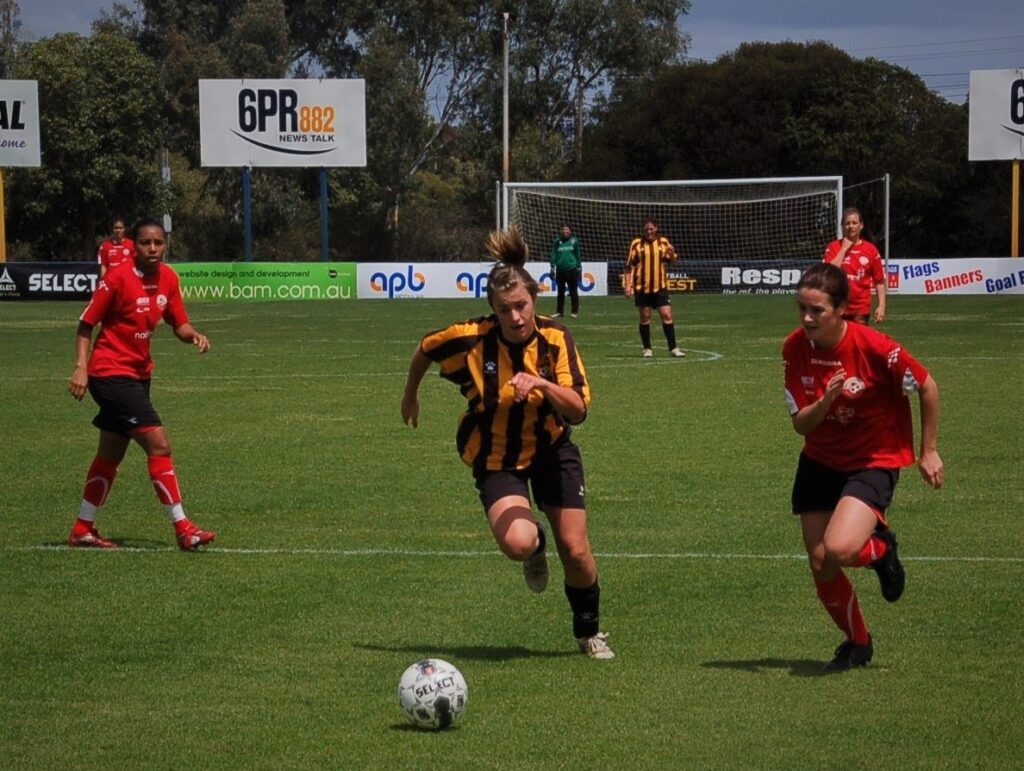

Stephen Suttie, head coach of the Phoenix women’s team, spoke about the club’s history.
“The club was formed in 2001 to compete in the State League for Men. This was following the break-up of Ashfield-Bunbury, who had been in the Premier League the previous year but had been relegated and broken up.
“At the time it was hoped that a South West team, fully united, would take its place in Division One. In 2007, SWP added junior teams into the Football West competitions from U13 to U16, and then a Women’s team was added in 2010 to the Women’s Premier League and competed in 2011 also.
“We had intended for the women to continue in 2012 but a lack of numbers (to make up a reserves team) meant that following the Night Series of 2012 a decision was made to withdraw (from the competition). The highlight of that period was making the State Cup final in 2010, but we lost to Northern Redbacks.
“The club then entered the State League Division One again in 2015 but lasted only one season due to the ongoing difficulty of fielding a reserves team. We rejoined the State league once more in 2018 and have been in the league since then.”
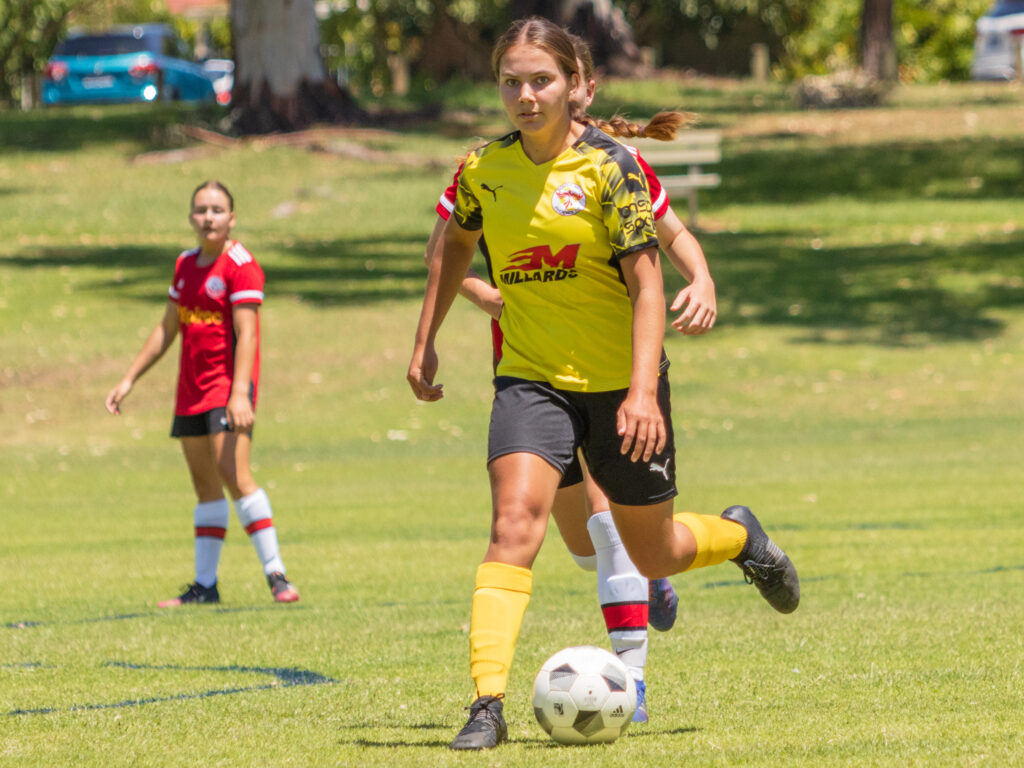

Since 2020, the club has been a dominant force in the Women’s State League and they were league champions in 2020, losing just one game during the campaign. They went one better in 2021 by claiming the title again, going unbeaten in the process, and are so far unbeaten in the 2022 campaign. They also picked up the State League Night Series trophy in 2021.
For SW Phoenix these successes are just rewards for the many long hours of sacrifice that their players and coaches have to make just to compete in the Perth leagues. For example, they have three players in the current squad who hail from Margaret River, and they have to make a two hour round trip for training which turns into a six-hour round trip for away games.
“The travel is a major problem because for the team every second Sunday is a write off for six months of the year. With most of our players under 18, it’s a big burden for parents and players to commit to us,” said Suttie.
All of this success would suggest that the club would be keen to gain entry into the NPLW, but this would require a reserve team as well as a first-team and this highlights another issue for the regional club.
“The other main problem lies with player depth and the ability in fielding a reserve team that will be competitive and having the structures and coaches to support that. We need to find 30 girls in the South West who want to travel two hours every second week to play a game of soccer and that’s difficult. Statistically, the number of registered players in recent years in the South West has not been on a consistent upward trend so the pool isn’t getting larger,” said Suttie.
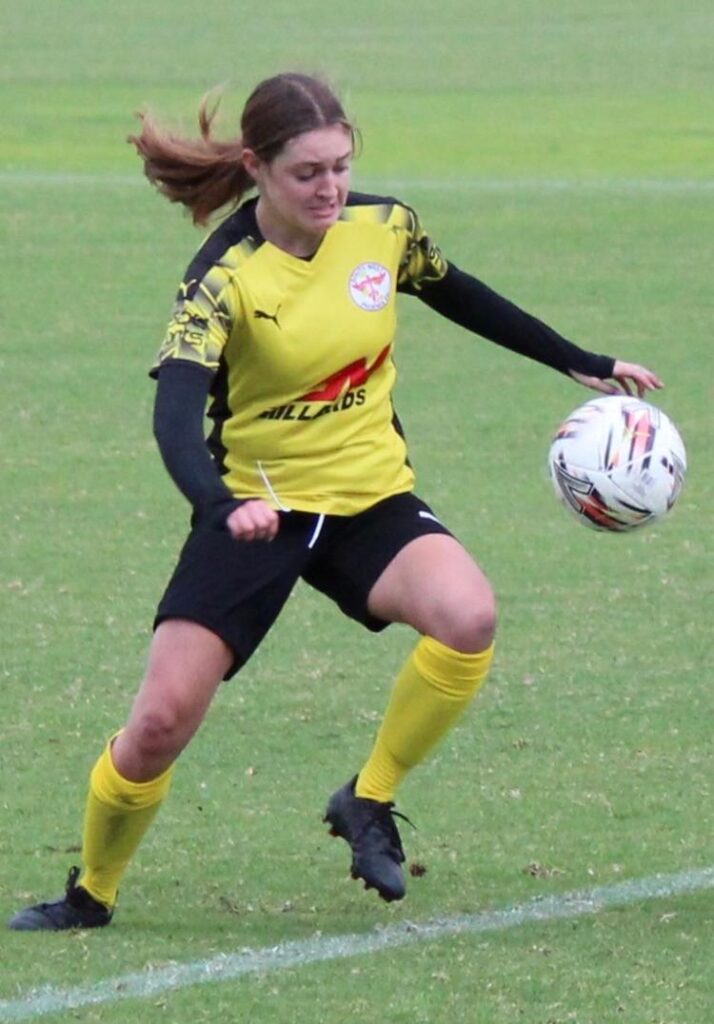

Given the success of the club in the State League competition and its history of producing players capable of playing at higher levels, it’s therefore surprising to hear that there is conflict around the direction of football in the South West and the role that Phoenix play. This has become so much of an issue that Football West has reviewed the structure of football in the region, and their recommendation was that SW Phoenix become a development club for the South West.






